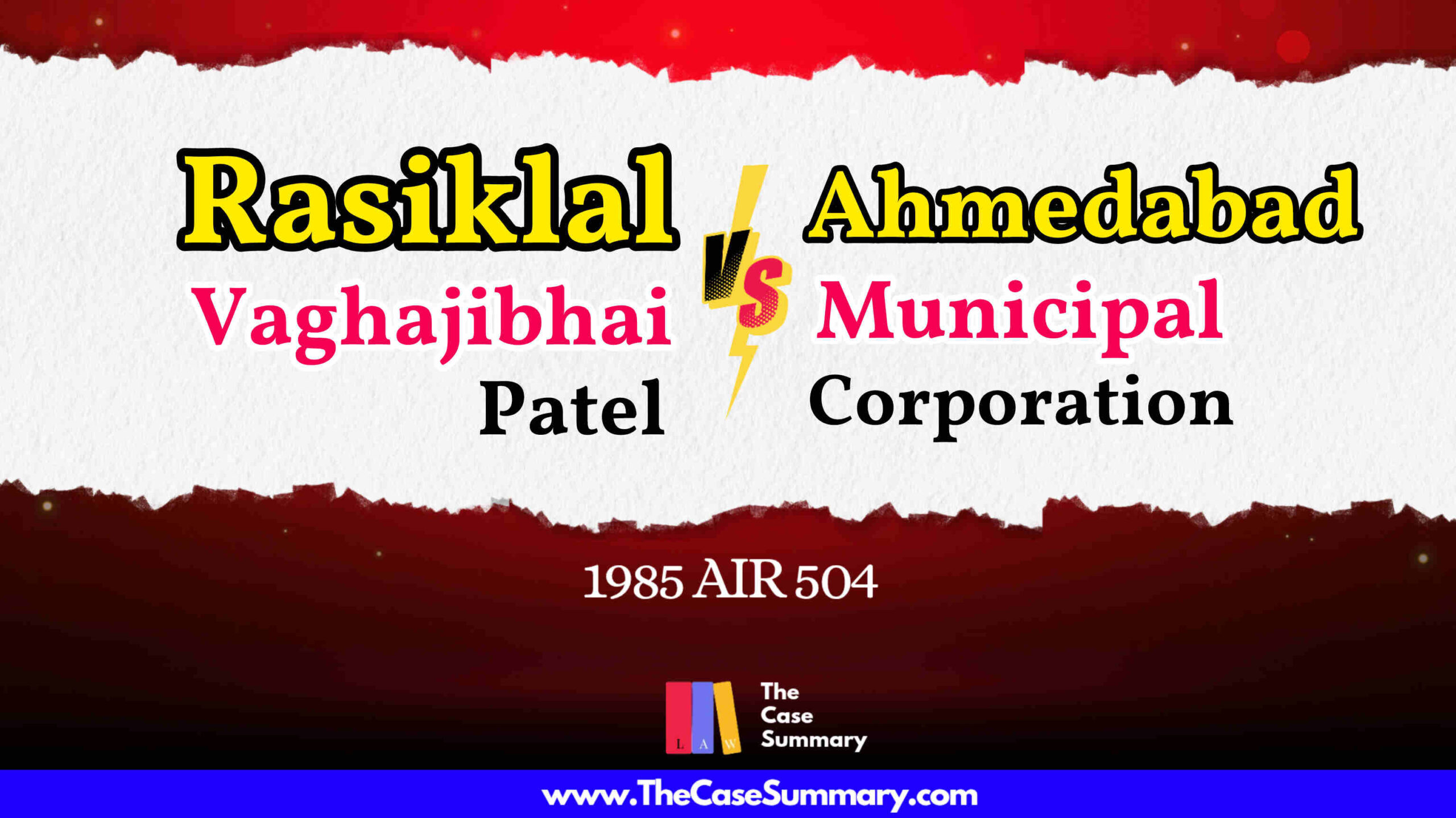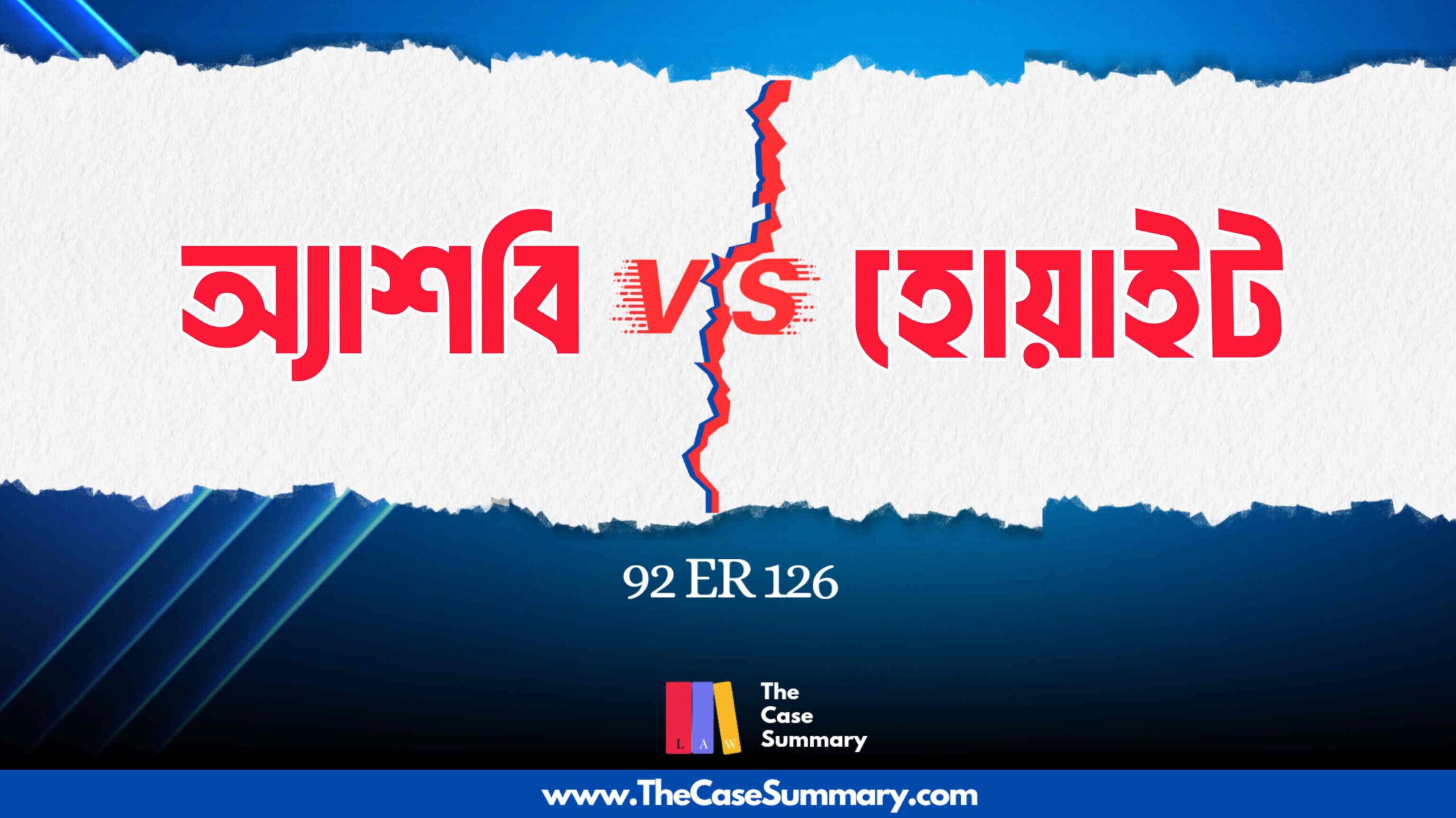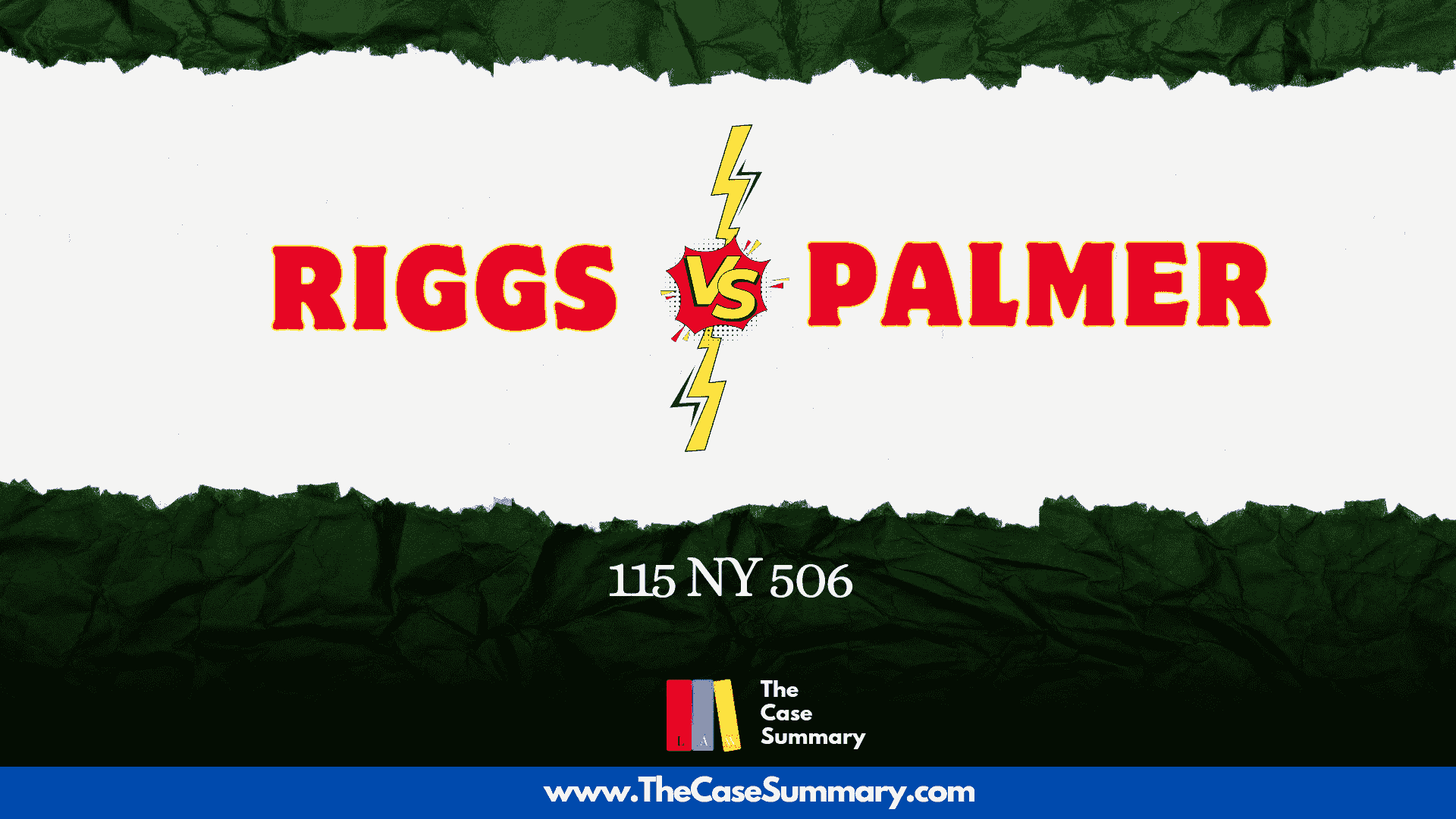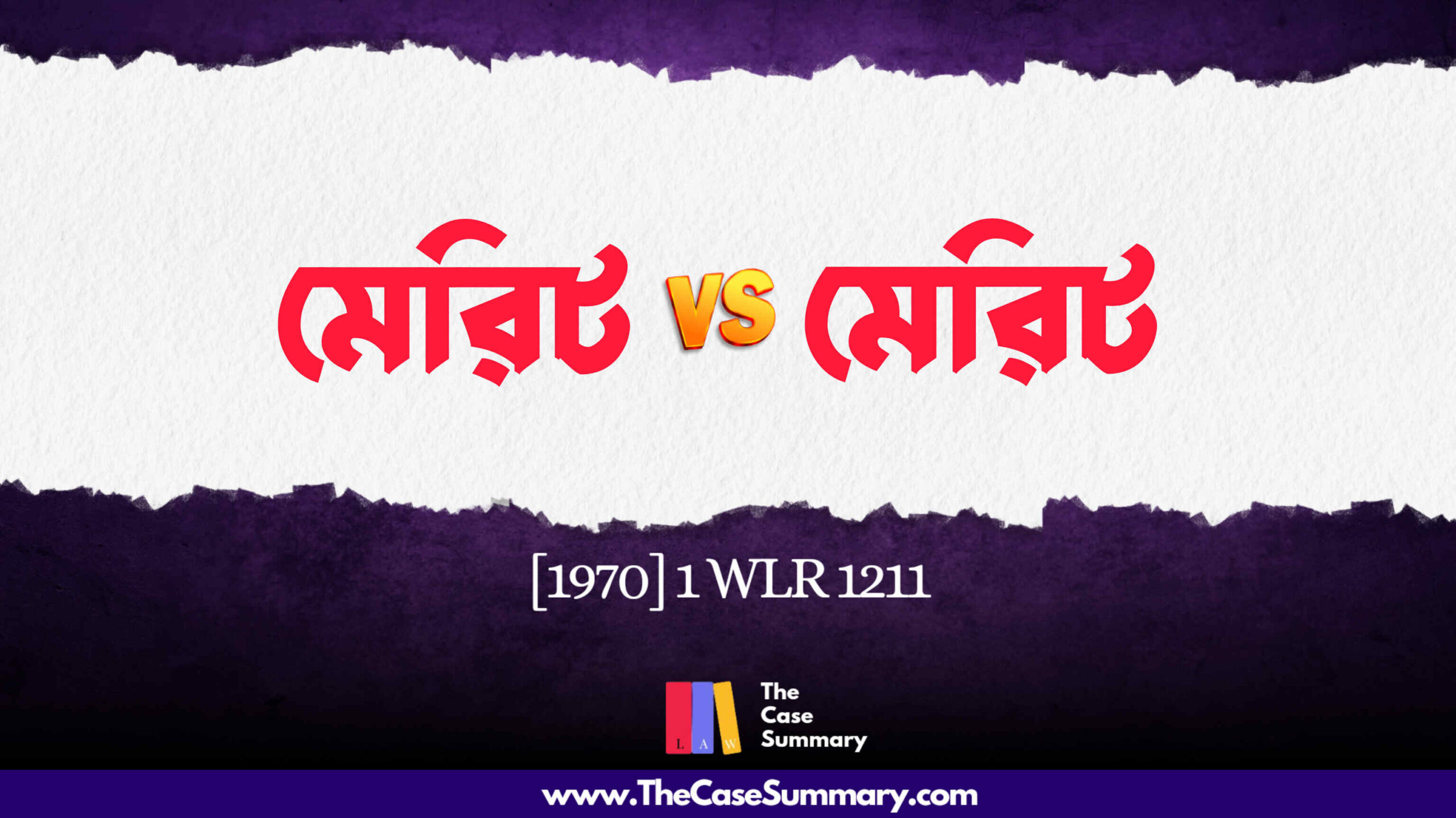Rasiklal Vaghajibhai Patel vs Ahmedabad Municipal Corporation & Another
Citation : 1985 AIR 504
Jurisdiction : India
Appellant : Rasiklal Vaghajibhai Patel
Respondent : Ahmedabad Municipal Corporation and Another
Facts :
The petitioner, Rasiklal Vaghajibhai Patel, was previously a sales tax inspector of a Sales Tax Department. He was charged with misconduct of gross negligence and of acting with gross impropriety in demanding illegal gratification at the time when he was working as a sales tax inspector. As these charges were proved, he was removed from his employment. After being removed, the petitioner joined a service in Bhakta Vallabh Dhola College, Ahmedabad. While continuing his service with the college, he applied for the post of head clerk with Ahmedabad Municipal Corporation in a prescribed form which contained a column requiring the applicant to state whether the applicant had been previously removed from any service, and if so, the reasons for such removal were also required to be stated. He intentionally concealed the real reason for his discharge from his previous employment and stated that he had voluntarily left the service due to a transfer. Ultimately, when the concealed truth came to light, he was charged and removed from service. A petition to the Labour Court was rejected on the ground that the misconduct alleged against the petitioner was proved. His writ petition to the Gujarat High Court was also unsuccessful. Hence, he filed this petition for special leave.
Issues :
1. Should the special leave petition prevail under the given circumstances?
Decisions :
Rasiklal was found guilty of hiding a material fact that would have affected an employer’s decision to employ him. Because of this, the petitioner’s case didn’t deserve to be considered under Article 136 of the Constitution of India, and his request for special permission to appeal was rejected.
The Court held that hiding the truth (suppresio veri) and giving false information (suggestio falsi) are forms of misconduct.
However, although the Supreme Court rejected the special leave, it also disagreed with the Gujarat High Court on the matter of the discretionary power of the employer in determining what would fall under “misconduct”. While the High Court of Gujarat stated that the employer could attribute a certain act or omission of the employee as a misconduct even if such was not enumerated in the service regulations, the Supreme Court of India disagreed with this stance, stating that the employer should not have the power of fishing out acts or omissions of misconducts which are not mentioned as such in the service regulation. Upon clarification of the legal position, the special leave petition was rejected.
Relevant Maxim :
He Who Comes to Equity Must Come With Clean Hands : This means that the person who seeks relief must not engage in illegal activity related to the same matter. If their behaviour is found unethical, the Court will dismiss the relief requested by the person. The Highwaymen case is the most accurate example of this maxim.
Relevant Law :
- The Constitution of India
- Article : 136
Author :
1. Sabbir Hossain Shovon
Note : The Case Summary is a platform by the law students, for the law students. We aim to summarize the facts and decisions of various important cases in both Bangla and English with utmost caution. However, this platform is in no way a replacement for going through the complete judgements by the law students and we discourage any learner from relying on case summaries alone. Thank you



